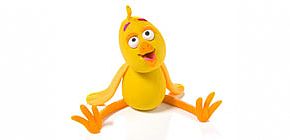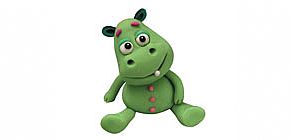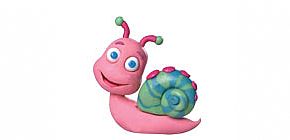Caring for Your Infant Post-Circumcision
.jpg) |
|
Congratulations, it’s a boy! One of the most significant events of his life is scheduled to take place in just eight days. Circumcision is a surgical operation, during which the foreskin covering the infant’s penis is removed. Medical complications related to circumcisions are relatively rare, so long as it is performed by a professional. That being said, the nature of the procedure and the fact that it is performed on a newborn tends to raise concerns among parents. To help relieve stress, the following article will inform you on how to prepare for the circ., care for your infant in its aftermath and look out for phenomena requiring immediate attention.
Caring for your infant post-circumcision
It is recommended to consult with a mohel, doctor, or pediatrician before the circ., to prepare for the aftercare regime, so your infant can require, complication-free.
● Diaper changes: In the first 24 hours post-circ., make sure to change diapers every three hours and avoid infecting the area when cleaning up your infant’s excrements.
● Alcohol for the umbilical area: while drying the umbilical stump with alcohol, take care that the circumcised area does not come into contact with the alcohol, as it could burn the infant.
● Bathing: Some recommend avoiding bathing the infant during the first day post-circ., instead using unscented wet wipes or cotton balls dipped in water to clean baby. Others recommend washing the circumcised penis with flowing, room temperature water. You can consult with the mohel or doctor who performed the circ. regarding the optimal bathing regimen. 24 hours later, you can wash your infant with soap and water, but avoid scrubbing or creating friction with the affected area.
● Oiling and sterilizing: To prevent the diaper from sticking to the wound, apply baby oil locally for a few days. You can also use antiseptic ointments to sterilize and calm the area. In addition, it is recommended to wash the area everyday (after the first day) for a week, with liquid antiseptic soap and flowing water, or in the bath.
Causes for concern following a circumcision
In most cases, it takes a week for the infant to fully recover from the circumcision, during which they suffer from local pain and normal restlessness. While rare, complications can occur and it is important that you be aware and identify them as quickly as possible, or even prevent them altogether:
● Pain: Most infants will not need additional painkillers after their circumcision. If your infant cries, you can administer painkillers/fever reducers, such as CTS’s Tiptipot Novimol, which contains paracetamol. If your infant is still extremely restless, stop giving medicine and seek immediate medical attention.
● Fever and other side-effects: If your infant’s fever is higher than 38 degrees, or if he is pale, sleepy or unusually quiet, take him to the emergency room at once.
● Secretions: A whitish-yellowish secretion will build up on the penis - it is not an infection and will disappear on its own within two weeks. Yellow secretions accompanied by fever and and redness require medical attention.
● Bleeding: Small blood stains on the diaper in the first week post-circ. are no cause for worry. Should massive blood loss (greater than the size of a coin) appear, take him to the emergency room at once.
● Swelling and change in coloration: the circumcised area may become temporarily swollen, but the swelling will go down shortly. The penis’ crown may change its color to maroon-blueish, but this is also not a cause for concern. Over the next year, the coloration will shift towards pinkish. Redness and swelling accompanied by yellow secretions require medical attention.
● Lack of urination: You must remain alert and keep track of your infant’s urine output. If your infant’s diaper is dry for more than a few hours, it could be that the bandages are too tight or that there’s a blood clot blocking the urinary tract. If this is the case, take your infant to the emergency room.
Treating fever post circumcision
Is your infant flushed, crying, apathetic or restless? Maybe he has a fever. The recommended way to check for a fever in infants is using a rectal thermometer. Fever in children is defined as a temperature exceeding 38 degrees. It is recommended to only administer fever reducing medication, should the fever exceed 38.5 degrees.
Medical treatment is the most popular way to reduce fevers and relieve pain. Medications containing paracetamol can be used from birth. Paracetamol is the active ingredient most commonly used for reducing fevers and relieving pain. The majority of doctors recommend administering paracetamol, as it is gentler on the stomach, medical experience using it is plentiful and it has been proven effective and safe for infant use. It is important to remember that before using any medication, you should read the user manual to determine the precise dose your child needs, based on their age and weight.
A 20-minute bath in a lukewarm (not cold!) bath can also work wonders when it comes to reducing fevers 24 hours and more after a circumcision. Note that you should not rub alcohol into your infant’s skin, nor should you attempt other traditional remedies, such as covering your infant in heavy blankets, multiple layers of clothing, wet towels, etc. If, despite your most valiant efforts, your infant’s fever does not go down, if the circumcised area is swollen, glowing, or red, or if your infant is pale, drowsy or unusually quiet, stop all medical treatments and immediately take him for medical treatment.
Fever reducing medication, a humidifier to relieve stuffy noses and creams to treat the skin - everything you should have in your infant’s toiletry ...
As new parents, you’ll want to ensure that your infant is lacking in nothing, from the start. Yet, when it comes to buying items for your little ones, ...
Aside from the Holy Trinity: crib, changing table and stroller, infant supply stores offer a wide variety of products. As such, it’s a good idea to ...


.jpg)
.jpg)
.jpg)
.jpg)



.jpg)
.jpg)
.jpg)
.jpg)

.jpg)



.jpg)

Contact us